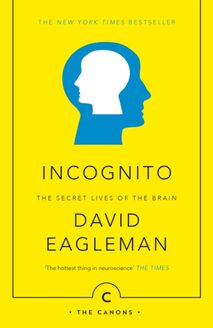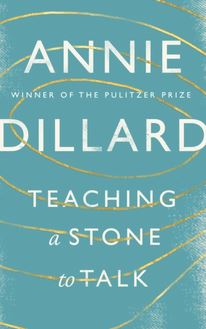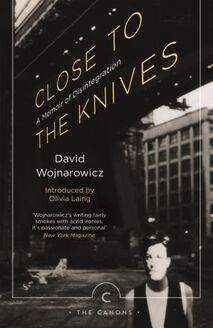-
 Univers
Univers
-
 Ebooks
Ebooks
-
 Livres audio
Livres audio
-
 Presse
Presse
-
 Podcasts
Podcasts
-
 BD
BD
-
 Documents
Documents
-
- Cours
- Révisions
- Ressources pédagogiques
- Sciences de l’éducation
- Manuels scolaires
- Langues
- Travaux de classe
- Annales de BEP
- Etudes supérieures
- Maternelle et primaire
- Fiches de lecture
- Orientation scolaire
- Méthodologie
- Corrigés de devoir
- Annales d’examens et concours
- Annales du bac
- Annales du brevet
- Rapports de stage
La lecture à portée de main
Vous pourrez modifier la taille du texte de cet ouvrage
Découvre YouScribe en t'inscrivant gratuitement
Je m'inscrisDécouvre YouScribe en t'inscrivant gratuitement
Je m'inscrisEn savoir plus
Vous pourrez modifier la taille du texte de cet ouvrage
En savoir plus

Description
Informations
| Publié par | Canongate Books |
| Date de parution | 05 janvier 2012 |
| Nombre de lectures | 0 |
| EAN13 | 9780857863430 |
| Langue | English |
| Poids de l'ouvrage | 1 Mo |
Informations légales : prix de location à la page 0,0320€. Cette information est donnée uniquement à titre indicatif conformément à la législation en vigueur.
Extrait
Also by Virginia Woolf
The Voyage Out
Night and Day
Jacob’s Room
Mrs Dalloway
To the Lighthouse
The Waves
The Years
Between the Acts
This digital edition published in 2012 by Canongate Books, 14 High Street, Edinburgh, EH1 1TE
First published in Great Britain in 1928 by The Hogarth Press
canongate.co.uk
Copyright © Virginia Woolf, 1928 Introduction copyright © Tilda Swinton, 2012
The moral rights of the authors have been asserted
The Canons editorial board: Ailah Ahmed, Jamie Byng, Liz Calder, Geoff Dyer, Nick Lezard, John Seaton and Erica Wagner
British Library Cataloguing-in-Publication Data A catalogue record for this book is available on request from the British Library
ISBN 978 1 78689 245 4 eISBN 978 0 85786 343 0
Typeset in Goudy by Palimpsest Book Production Ltd, Falkirk, Stirlingshire
Virginia Woolf was born in London in 1882. Shortly after her father's death, she moved to Bloomsbury where, with her sister, the painter Vanessa Bell, Virginia met writers and artists such as Lytton Strachey and Roger Fry, forming what later became known as the Bloomsbury Group. In 1912 she married Leonard Woolf and together, in 1917, they founded their own printing press. Virginia Woolf met Vita Sackville-West in 1922, for whom the brilliant fantasy of Orlando was written. She died in 1941 after drowning herself in the River Ouse.
CONTENTS
List of Illustrations
Introduction
Preface by Virginia Woolf
Orlando
Index
ILLUSTRATIONS
Orlando as a Boy
The Russian Princess as a Child
The Archduchess Harriet
Orlando as Ambassador
Orlando on Her Return to England
Orlando About the Year 1840
Marmaduke Bonthrop Shelmerdine, Esquire
Orlando at the Present Time
INTRODUCTION
by Tilda Swinton
One morning, Virginia Woolf sat down to work on a critical piece of fiction and, having first dropped her head in her hands in despair:
‘dipped my pen in the ink, and wrote these words as if automatically, on a clean sheet: Orlando: a Biography. No sooner had I done this than my body was flooded with rapture and my brain with ideas. I wrote rapidly till 12.’
A year and two days later, she laid down her pen, having written the date – 11 October 1928 – as the final words of this, the book you are now holding.
*
Virginia Woolf was the loyal daughter, not only of an erudite and distinguished biographer, but also of his library, her early dependence on which formed the foundation of her entire intellectual life. Her later biography of Roger Fry must have satisfied this debt in a quite particular way. But at this point she wanted to write freely – ‘wildly’ – as an imaginative novelist, and Orlando gave her the chance to split the atom: a fantastical biography – inspired by a very real human being – but essentially a whim of imagination, a wild goose chase. She called it her ‘writer’s holiday’.
Vita Sackville-West was the intended recipient of ‘the longest love letter in the world’, as Sackville-West’s own son Nigel Nicholson described it. She was certainly its primary inspiration. Writing to her on the day of Orlando ’s inception, Woolf asks:
‘Suppose Orlando turns out to be Vita . . . there’s a kind of shimmer of reality which sometimes attaches itself to my people, as the lustre on an oyster shell . . . shall you mind? Say yes or no. Your excellence as a subject arises largely from your noble birth (but what’s 400 years of nobility, all the same?) and the opportunity this gives for florid descriptive passages in great abundance. Also, I admit I should like to untwine and twist again some very odd, incongruous strands in you . . . and also it sprung upon me how I could revolutionise biography in a night: and so if agreeable to you I would like to toss this up into the air and see what happens.’
Sackville-West was an object of true fascination for Woolf. She offered, beyond the specifics of a sincerely personal and sympathetic relationship, a kind of experiential harmony of so much that was dear to Woolf at second hand: the maternal abundance of her own – beloved and sorely missed – mother; the liberated sensual life Woolf looked for in herself and found inhibited; the kind of uncomplicated noble confidence she craved. ‘I want coronets; but they must be old coronets; coronets that carry land with them and country houses; coronets that breed simplicity, eccentricity, ease’, she wrote in 1936.
Twisting copious incongruous strands, then, this elegant fictional portrait gives us the Lord Orlando: proto Emo-poet prince; the beautiful, sensitive, brave, lonely, saucy, questing, spaniel-loving toff, with a house the size of a town and a family with exotic as well as indigenous branches to its tree; the romantic who carries in his/her breast through four centuries the life-stained manuscript of his/her one great poem, ‘The Oak Tree’. Sackville-West had famously won the prestigious Hawthornden Prize for her long poem ‘The Land’ the year Orlando was begun. During the suffocating Victorian period, feeling herself under pressure to find a mate, Orlando flings herself down in the wild moor’s heather, declaring herself – definitively – nature’s bride, none other’s.
Woolf tells us her fantastic prince/ss is Vita but she leaves herself out of the mix and that feels shy of the whole picture. Orlando’s ancestors, their courtyards and acres, treasures and traditions, cramped their descendant’s style no less than Woolf’s was pinched by the honour she owed to her father’s Dictionary of National Biography . Forefathers and How to Survive Them is as good a subtitle for this book as any other.
The subject of inheritance had long intrigued Woolf. She writes of herself as ‘descended from a great many people, some famous, some obscure’, and grew up in a house inhabited by a domestic group made up of three families converged (her parents brought four children between them to their marriage and proceeded to have four more). She constantly played with the various atmospheres of her childhood as one might with marbles in a pocket. Between the ‘communicative, letter-writing, visiting, articulate, late nineteenth century world’ that surrounded her parents in their house in Kensington and the rapturous remove of their family idyll in St Ives in Cornwall, which formed the hallowed mine for so much of her most tender writing, Woolf describes an origin of engrained, almost synthetic, watchfulness: ‘the feeling of lying in a grape and seeing through a film of semi-transparent yellow’. Orlando shares this sensitivity; his existential connection to the changing seasons of each century is remarkable. He suffers from glooms that last seven days following deep crises. By the time she was in her mid-twenties, Woolf had experienced the trauma of serial bereavement and had been institutionalised following the onset of what was to become a pattern of nervous collapses throughout her life. It is poignant to view this fantasy through the prism of the consciousness of someone for whom immortality might seem particularly elusive.
Woolf wrote of the limitations of memoir – ‘they leave out the person to whom things happened’ – and so with Orlando she fuses memoir and biography, that discipline so revered in her father’s study and which she so eagerly wished to revolutionise in a night. We could say that Orlando is Woolf’s avatar dressed up in Sackville-West’s clothing.
In their letters to each other, we can trace the inspiration for Orlando’s fellow poet Nick Greene’s hilarious hypochondria, his obsession with money and with the back-biting criticism of his contemporaries, as Sackville-West teases Woolf with the charge of similar tendencies. By the same token, we can read Woolf parodying Lady Sybil Colefax’s attempts to ‘lion-hunt’ from the perspective of the artist harassed by the great hostess (‘she would exclaim, "Oh how I long to be a writer!" and I would reply "Oh Sybil! If only I could be a great hostess like you!"’).
‘It is necessary to write, if the days are not to slip emptily by. How else, indeed, to clap the net over the butterfly of the moment? For the moment passes, it is forgotten; the mood is gone; life itself is gone. That is where the writer scores over his fellows: he catches the changes of his mind on the hop.’
So wrote Vita Sackville-West, celebrated writer, celebrated hostess.
I love this quote. It reminds me of Woolf catching moths as a child with her father. There is something so practical, so physical a gesture informing the attitude of both these writers: so typically muscular, so bodily and lived. The catching of wayward things with nets and then pinning them down.
Woolf often talked about the passing of time, but denying the power of time to pass seems so integral an aspect of her work as a writer. All her pasts are rekindled, all her memories refreshed by the magical vivacity of her writing. Some butterflies survive the bottle and prove immortal. By the time she came to write Orlando , she had written three novels, all concerned with the project of revisiting – reanimating – intimately lived experience. This reanimation, together with an acceptance of the inevitability of transformation, multiplicity, inclusion and evolution, marks Woolf as a profoundly spiritual writer, as well as the formally modern one she is esteemed to be. This book, this slender plaything of an excursion, is, perhaps, the most transgressive experiment she ever made: the merging of a double-exposure portrait, in the vernacular of her paternal inheritance, as a kind of talisman of hopefulness and carefree abandon toward something better than a brightening future – rather a glorious, trustworthy present.
I must declare now, at this border, that my own relationship with Orlando is complex and entwined, a kinship’s entanglement.
I was at school near Sevenoaks, within a short walk of Knole, and one of my school chums was a Sackville-West.
Like Orlando – like Vita – I had grown up in an old house and looked like the people i

Ebooks
Chronicle In Stone
Ismail Kadaré


Ebooks
Incognito
David Eagleman


Ebooks
Ocean Sea
Alessandro Baricco


Ebooks
Fortunate Man
John Berger


Ebooks
Teaching a Stone to Talk
Annie Dillard


Ebooks
Neither Wolf Nor Dog
Kent Nerburn


Ebooks
Close to the Knives
David Wojnarowicz


Ebooks
Philadelphia Fire
Edgar Wideman John


Ebooks
L.A. Woman
Eve Babitz


Ebooks
Edge of the Sea
Rachel Carson


Ebooks
Under the Sea-Wind
Rachel Carson


Ebooks
Pattern in the Carpet
Margaret Drabble


Ebooks
Reconciliation
Naoya Shiga


Ebooks
Dante's Divine Trilogy
Alasdair Gray


Ebooks
Summer Bird-Cage
Margaret Drabble

-
 Univers
Univers
-
 Ebooks
Ebooks
-
 Livres audio
Livres audio
-
 Presse
Presse
-
 Podcasts
Podcasts
-
 BD
BD
-
 Documents
Documents
-
Jeunesse
-
Littérature
-
Ressources professionnelles
-
Santé et bien-être
-
Savoirs
-
Education
-
Loisirs et hobbies
-
Art, musique et cinéma
-
Actualité et débat de société
-
Jeunesse
-
Littérature
-
Ressources professionnelles
-
Santé et bien-être
-
Savoirs
-
Education
-
Loisirs et hobbies
-
Art, musique et cinéma
-
Actualité et débat de société
-
Actualités
-
Lifestyle
-
Presse jeunesse
-
Presse professionnelle
-
Pratique
-
Presse sportive
-
Presse internationale
-
Culture & Médias
-
Action et Aventures
-
Science-fiction et Fantasy
-
Société
-
Jeunesse
-
Littérature
-
Ressources professionnelles
-
Santé et bien-être
-
Savoirs
-
Education
-
Loisirs et hobbies
-
Art, musique et cinéma
-
Actualité et débat de société
- Cours
- Révisions
- Ressources pédagogiques
- Sciences de l’éducation
- Manuels scolaires
- Langues
- Travaux de classe
- Annales de BEP
- Etudes supérieures
- Maternelle et primaire
- Fiches de lecture
- Orientation scolaire
- Méthodologie
- Corrigés de devoir
- Annales d’examens et concours
- Annales du bac
- Annales du brevet
- Rapports de stage





